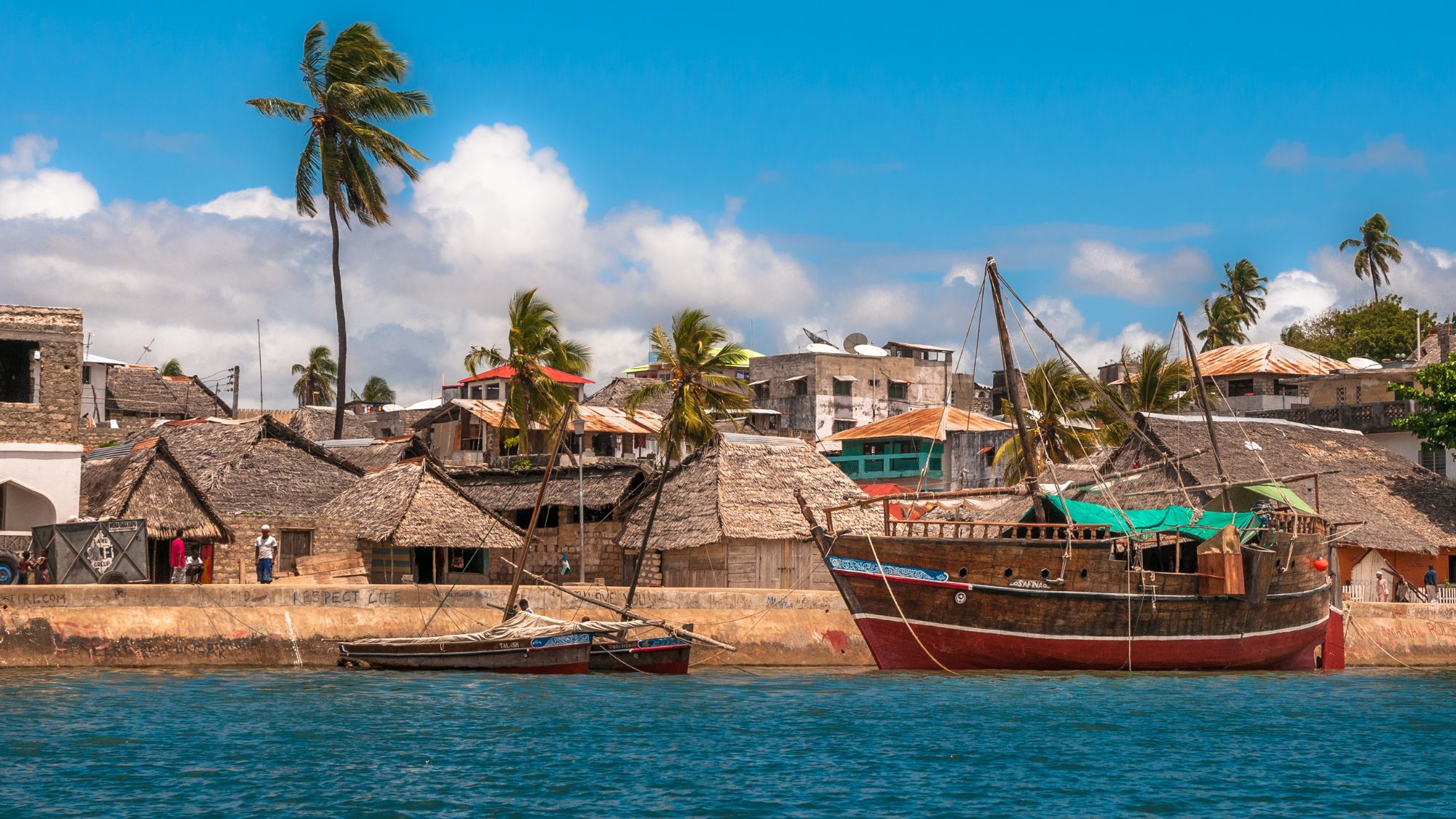The surprisingly unspoilt delights of Lamu
This Kenyan island is one of the world's most bewitching places

A free daily email with the biggest news stories of the day – and the best features from TheWeek.com
You are now subscribed
Your newsletter sign-up was successful
With its glorious old town, "spectacular" beaches and "laid-back" atmosphere, the Kenyan island of Lamu is one of the world's most bewitching places. I first visited as a "scruffy backpacker" in 1992, said Jeffrey Gettleman in Travel + Leisure, and over the course of 20 subsequent visits, I have watched as "sparkling white vacation villas" have sprung up along its shores, and celebrities from Madonna to Mick Jagger have discovered its charms. But it is still unspoilt. There are very few cars, the island's fragile mangrove creeks and sand dunes are intact, Lamu Old Town (the world's oldest Swahili settlement, and a Unesco World Heritage Site) is well preserved, and the atmosphere is still warm and welcoming.
The best place to stay is the family owned Peponi Hotel, which opened more than 50 years ago. Set on a breezy stretch of beach two miles outside town, it has the "classiest" rooms ("airy and white") and the "liveliest scene" on the island. Its chef is a master of Swahili cuisine (which is delicious, "relying heavily on coconut milk, ginger, cardamom, Indian masala spices and fresh fish"), and its owner arranges excellent itineraries for guests, from lunch reservations to sunset boat trips. It also has plenty of watersports equipment, including two ski boats.
"A maze of snaking alleys, small squares, mosques and tucked-away shops", Lamu Old Town was founded as a trading post seven centuries ago, and "reflects the influence of people from all over – Indians, Omanis, Persians, Portuguese". In its "friendly" market, the fragrance of ripening mangoes mingles with "the scents of crisping samosas and salty sea air". And the walk back to Peponi's from the town is beautiful. Along the way, children might invite you to join in a game of football on the beach, and at the hotel, "barefoot boat captains in their prayer caps" often patronise the bar, making for good company in the evenings, if you want it.
The Week
Escape your echo chamber. Get the facts behind the news, plus analysis from multiple perspectives.

Sign up for The Week's Free Newsletters
From our morning news briefing to a weekly Good News Newsletter, get the best of The Week delivered directly to your inbox.
From our morning news briefing to a weekly Good News Newsletter, get the best of The Week delivered directly to your inbox.
Sign up to The Week's Travel newsletter for destination guides and the latest trends
A free daily email with the biggest news stories of the day – and the best features from TheWeek.com
-
 Switzerland could vote to cap its population
Switzerland could vote to cap its populationUnder the Radar Swiss People’s Party proposes referendum on radical anti-immigration measure to limit residents to 10 million
-
 Political cartoons for February 15
Political cartoons for February 15Cartoons Sunday's political cartoons include political ventriloquism, Europe in the middle, and more
-
 The broken water companies failing England and Wales
The broken water companies failing England and WalesExplainer With rising bills, deteriorating river health and a lack of investment, regulators face an uphill battle to stabilise the industry
-
 A thrilling foodie city in northern Japan
A thrilling foodie city in northern JapanThe Week Recommends The food scene here is ‘unspoilt’ and ‘fun’
-
 Tourangelle-style pork with prunes recipe
Tourangelle-style pork with prunes recipeThe Week Recommends This traditional, rustic dish is a French classic
-
 Samurai: a ‘blockbuster’ display of Japan’s legendary warriors
Samurai: a ‘blockbuster’ display of Japan’s legendary warriorsThe Week Recommends British Museum show offers a ‘scintillating journey’ through ‘a world of gore, power and artistic beauty’
-
 BMW iX3: a ‘revolution’ for the German car brand
BMW iX3: a ‘revolution’ for the German car brandThe Week Recommends The electric SUV promises a ‘great balance between ride comfort and driving fun’
-
 Arcadia: Tom Stoppard’s ‘masterpiece’ makes a ‘triumphant’ return
Arcadia: Tom Stoppard’s ‘masterpiece’ makes a ‘triumphant’ returnThe Week Recommends Carrie Cracknell’s revival at the Old Vic ‘grips like a thriller’
-
 My Father’s Shadow: a ‘magically nimble’ love letter to Lagos
My Father’s Shadow: a ‘magically nimble’ love letter to LagosThe Week Recommends Akinola Davies Jr’s touching and ‘tender’ tale of two brothers in 1990s Nigeria
-
 Send Help: Sam Raimi’s ‘compelling’ plane-crash survival thriller
Send Help: Sam Raimi’s ‘compelling’ plane-crash survival thrillerThe Week Recommends Rachel McAdams stars as an office worker who gets stranded on a desert island with her boss
-
 The 8 best superhero movies of all time
The 8 best superhero movies of all timethe week recommends A genre that now dominates studio filmmaking once struggled to get anyone to take it seriously